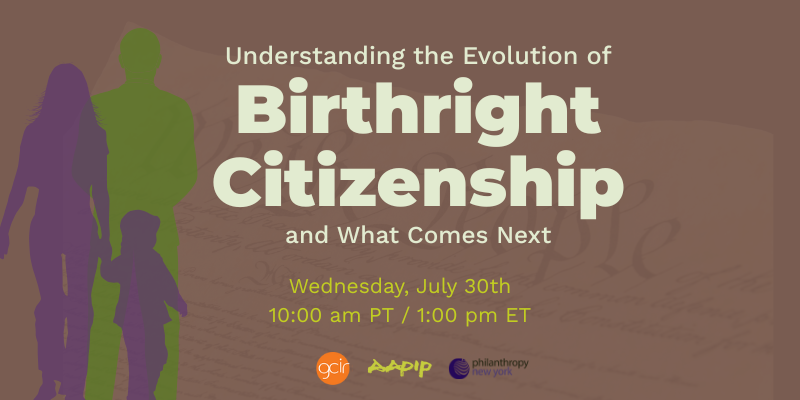 AAPIP
AAPIP

Birthright citizenship, which has been guaranteed by the Fourteenth Amendment of the U.S. Constitution for nearly 160 years, automatically grants citizenship to those born in the United States and with it confers all of the rights, freedoms, and access to full participation in the democratic process. It is a fundamental principle that has come to define American democracy and inclusion.
On his first day in office, President Trump issued an Executive Order seeking to radically end birthright citizenship for children born in the U.S. to parents who are either undocumented or who have temporary immigration status. Multiple legal challenges immediately followed, and a lower court issued a nationwide injunction preventing the EO from going into effect. In one of its final decisions of the session, however, the U.S. Supreme Court issued a devastating ruling last month restricting nationwide injunctions, paving the way for the EO to possibly apply while the underlying constitutional issues are being litigated. Since that ruling, a lower court blocked the EO from taking effect nationwide by certifying a class-action lawsuit.
Join us for a conversation about the history of citizenship in this country, the ongoing debate about who gets to be an American, the impact of the Supreme Court decision on the broader fight to protect civil rights, and what comes next in the legal battle.
This webinar is co-sponsored by Grantmakers Concerned with Immigrants and Refugees (GCIR).

